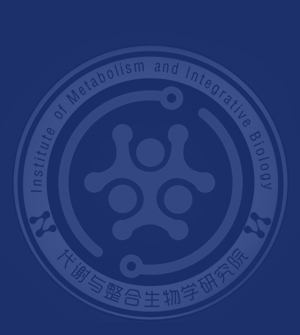


Tel: 0086-21-31242930
Email: junfeng_bi@fudan.edu.cn
Office Address: Room D7007, Interdisciplinary Buiding No.2, Fudan University
Personal Profile
2021-2022 Basic life research scientist, Stanford University
2020-2021 Senior research associate, University of California San Diego
2014-2020 Postdoctoral fellow, Ludwig Institute for Cancer Research, University of California San Diego
2014 Ph.D., Developmental Biology, Institute of Genetics and Developmental Biology, Chinese Academy of Sciences
2007 B.S., Biology, Wuhan University
Research Interests
The main focus of our lab is to understand the fundamental metabolic and signaling mechanisms that drive cancer development and progression by altering the lipid composition, organization, and function of the plasma membrane. In particular, understanding the role of membrane lipids, the mechanisms that catalyze their formation, and related metabolic dependencies of cancer, is central to our research, with the overall goal of developing more effective treatments for patients. Our work will help to elucidate the mechanisms of how cancer cells reprogram their membrane lipids metabolism in tumor progression and therapeutic response, understand their link to specific tumor genotypes, decipher how microenvironments coordinate with tumor lipid metabolism to shape oncogenic signaling, and discover actionable metabolic dependencies and therapeutic targets for cancer treatment.
Selected Publications
Bi J*, Khan A, Tang J, Armando AM, Wu S, Zhang W, Gimple RC, Reed A, Jing H, Koga T, Wong IT, Gu Y, Miki S, Yang H, Prager B, Curtis EJ, Wainwright DA, Furnari FB, Rich JN, Cloughesy TF, Kornblum HI, Quehenberger O, Rzhetsky A, Cravatt BF, Mischel PS*. Targeting glioblastoma signaling and metabolism with a re-purposed brain-penetrant drug. Cell Reports, 2021, 37(5): 109957.
Bi J#, Chowdhry S#, Wu S#, Zhang W, Masui K, Mischel PS*. Altered cellular metabolism in gliomas - an emerging landscape of actionable co-dependency targets. Nature Reviews Cancer, 2020, 20(1): 57-70.
Bi J, Ichu TA, Zanca C, Yang H, Zhang W, Gu Y, Chowdhry S, Reed A, Ikegami S, Turner KM, Zhang W, Villa GR, Wu S, Quehenberger O, Yong WH, Kornblum HI, Rich JN, Cloughesy TF, Cavenee WK, Furnari FB, Cravatt BF, Mischel PS*. Oncogene amplification in growth factor signaling pathways renders cancers dependent on membrane lipid remodeling. Cell Metabolism, 2019, 30(3): 525-538.
Bi J, Mischel PS*. Acyl-CoA-binding protein fuels gliomagenesis. Cell Metabolism, 2019, 30(2): 229-230.
Bi J#, Wu S#, Zhang W#, Mischel PS*. Targeting cancer's metabolic co-dependencies: a landscape shaped by genotype and tissue context. Biochimica et biophysica acta. Reviews on cancer, 2018, 1870(1): 76-87.
Bi J, Wang W, Liu Z, Huang X, Jiang Q, Liu G, Wang Y, Huang X*. Seipin promotes adipose tissue fat storage through the ER Ca2+-ATPase SERCA. Cell Metabolism, 2014, 19(5): 861-871.
Wu S#, Bi J#, Cloughesy T, Cavenee WK, Mischel PS*. Emerging function of mTORC2 as a core regulator in glioblastoma: metabolic reprogramming and drug resistance. Cancer Biol Med, 2014, 11(4): 255-263.
Bi J#, Xiang Y#, Chen H, Liu Z, Grönke S, Kühnlein RP, Huang X*. Opposite and redundant roles of the two Drosophila Perilipins in lipid mobilization. Journal of Cell Science, 2012, 125(15): 3568-3577.
Tian Y#, Bi J#, Shui G, Liu Z, Xiang Y, Liu Y, Wenk MR, Yang H, Huang X*. Tissue-autonomous function of Drosophila Seipin in preventing ectopic lipid droplet formation. PLoS Genetics, 2011, 7(4): e1001364.
Chowdhry S, Zanca C, Rajkumar U, Koga T, Diao Y, Raviram R, Liu F, Turner K, Yang H, Brunk E, Bi J, Furnari F, Bafna V, Ren B, Mischel PS*. NAD metabolic dependency in cancer is shaped by gene amplification and enhancer remodelling. Nature, 2019, 569(7757): 570-575.
Gimple RC, Kidwell RL, Kim LJY, Sun T, Gromovsky AD, Wu Q, Wolf M, Lv D, Bhargava S, Jiang L, Prager BC, Wang X, Ye Q, Zhu Z, Zhang G, Dong Z, Zhao L, Lee D, Bi J, Sloan AE, Mischel PS, Brown JM, Cang H, Huan T, Mack SC, Xie Q, Rich JN*. Glioma stem cell specific super enhancer promotes polyunsaturated fatty acid synthesis to support EGFR signaling. Cancer Discovery, 2019, 9(9): 1248-1267.
Villa GR, Hulce JJ, Zanca C, Bi J, Ikegami S, Cahill GL, Gu Y, Lum KM, Masui K, Yang H, Rong X, Hong C, Turner KM, Liu F, Hon GC, Jenkins D, Martini M, Armando AM, Quehenberger O, Cloughesy TF, Furnari FB, Cavenee WK, Tontonoz P, Gahman TC, Shiau AK, Cravatt BF, Mischel PS*. An LXR-cholesterol axis creates a metabolic co-dependency for brain cancers. Cancer Cell, 2016, 30(5): 683-693.



 Fudan Email
Fudan Email Fudan Ehall
Fudan Ehall